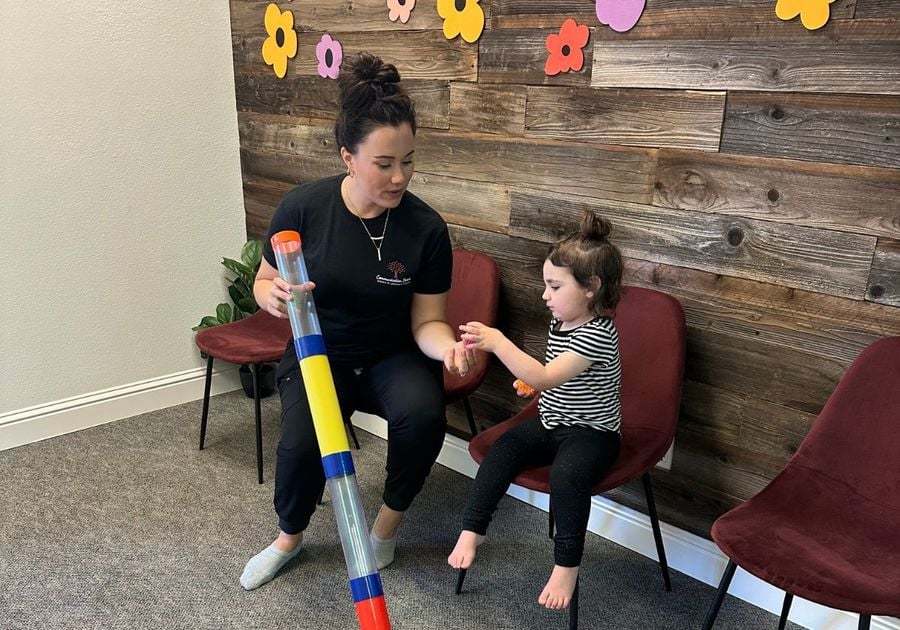When a child is exhibiting a speech and/or language delay, many times parents are encouraged to, “wait and see.” “Wait and see” is antiquated advice. Delayed speech and language skills can often lead to social challenges and an increase of behavior due to frustration.
Other responses concerned parents may hear:
“My son/daughter didn’t talk ‘til 5 and they’re fine.”
“He’s a boy, they’re slower than girls.”
“She’s just stubborn.”
“You’re overreacting, they’ll grow out of it.”
I’m here to tell you the opposite– if you have a concern about your child’s speech or language, SEEK AN EXPERT OPINION! Consult with a speech-language pathologist who can actually tell you if your concerns are warranted. I promise you, this will not hurt you or your child.
If a child is truly only speech or language delayed (without any underlying concerns such as hearing loss, Autism, or Apraxia), then there are easy to implement, effective strategies that can be used to increase your child’s speech and language skills.
At Communication Blooms, we see children as young as 16 months old. We use a combination of direct therapy with the child and parent coaching. This ensures that the strategies recommended are used throughout the child’s day, not only during direct sessions. This therapy model is effective and usually only needed for a duration of 6 months or less. There are many factors that influence therapy duration such as how much parents and family members are implementing strategies at home.
Signs that your child is experiencing speech and/or language delays under 3 years old:
13-18 months old:
● Not following directions (get the ball, come here, etc)
● Not looking around when you say, “where’s your blanket?” “where’s daddy?”, etc.
● Not using head nod/shake to indicate yes/no
● Not using gestures like clapping or high fives
● Not understanding or using words for common objects, some actions, and people
● Not babbling with conversation-like intonation
19-24 months old:
● Not using at least 50 different words/word approximations (e.g., “uhoh” is a word, “dah”
for dog is a word)
● Not putting two words together (e.g., more water, go out)
● Not following 2-step instructions (e.g., get your shoes and go to the door)
● Not using words to ask for help
2 to 3 years old:
● Not using 2 to 3 word combinations (e.g., I need water, mama pick up)
● Not trying to get your attention by saying, “watch me” or “look at me!”
● Not asking, “why?” or “how?”
● Not saying their name when asked
● Not using -ing at the end of action words (e.g., running, eating)
● Not correctly producing the following consonants: p, b, m, h, w, d, and n
● Not correctly producing most vowel sounds in words
● Not being easily understood by familiar listeners
If your child is not doing one or two of the above milestones, that may not be cause for concern. However, if you’re seeing that your child is not meeting all or most of the listed milestones for their age, this warrants investigation. If there are additional concerns such as Autism, Apraxia, or hearing loss, I can also help you create a plan to support your child’s overall communication development.
Ultimately, if you have a concern about your child’s speech and language development–call a speech-language pathologist and schedule an evaluation. If your child has a delay, start therapy, don’t let them fall behind.
I am happy to chat with you about your child’s speech and language development and get you started on the right path!. We can schedule an initial 15 minute consultation call at no cost to you!
Call or text: (209) 683-3427
Email: mackenzie@communicationblooms.org Visit our website: communicationblooms.org
References: asha.org



